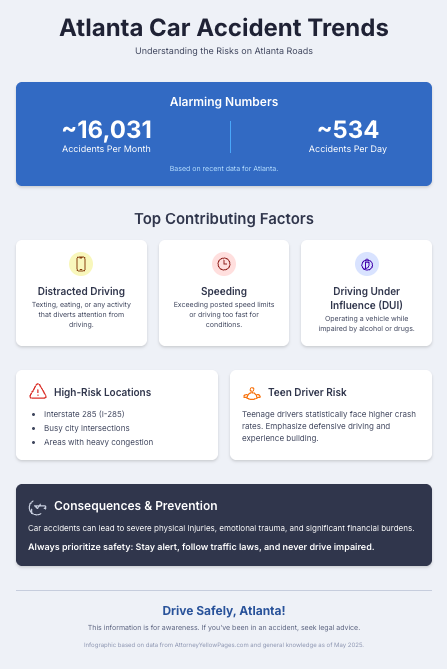State Farm’s marketing strategies are undoubtedly widespread and cleverly designed, often featuring prominent athletes like Patrick Mahomes and Aaron Rodgers. Their commercials, aimed at drawing people in with the promise of being there for their clients “like a good neighbor,” have become iconic.
Yet, behind this catchy motto lies a notorious reputation for employing various tactics to avoid paying out settlements for car accidents. Despite the allure of their advertising and the comforting promise of reliability, State Farm has faced criticism for their reluctance to honor claims, employing measures that sometimes seem more focused on minimizing payouts than genuinely supporting their policyholders in times of need.
Is State Farm Good At Paying Claims?
State Farm’s commercials present a charming facade, but behind the scenes lies a company known for its operating tactics that prioritize profit over policyholders’ injuries and property loss. Operating in bad faith has become a recurrent theme in State Farm’s practices, exemplified by their record-breaking profits achieved through a combination of inflated insurance premiums and a consistent pattern of restricting car accident settlement payouts.
As of 2022, State Farm stands as the largest auto insurance company in the US, holding an extensive 16% share of the market with $40.4 billion in premiums. State Farm is a formidable force when handling claims, often making individuals feel like obstacles rather than priorities. Their history of bad faith is evident in legal battles, notably a landmark Supreme Court case involving punitive damages due to mishandling a fatal accident.
State Farm’s questionable practices extend beyond this case, with numerous ongoing class actions alleging racial discrimination and unpredictable devaluation of totaled vehicles in State Farm car accident settlements. This approach of prioritizing their profit over policyholders’ injuries and damages has become distressingly common in the insurance industry, where minimizing or denying claims is a top priority. Many Austin car accident attorneys have encountered shocking instances of this behavior, emphasizing the importance of seeking legal assistance to navigate insurance claim processes and secure the rightful compensation owed after an auto accident.
State Farm Not Paying Claims
State Farm’s reputation for denying claims and prioritizing profits over policyholders has been marred by numerous accusations and legal disputes. The American Association for Justice has brought to light various instances where State Farm has been accused of operating in ways that prioritize their financial interests over the fair treatment of their customers.
The company’s tactics often seem geared toward minimizing payouts, including:
- Undervaluing properties of homeowners
- Delaying State Farm car accident settlements
- Defending lawsuits to the bitter end
- Even resorting to forging customers’ signatures on crucial policy documents
Their mishandling of claims related to Hurricane Katrina in 2005 further spotlighted their questionable practices, with evidence suggesting alterations to damage reports to shortchange customers. Despite their slogan promising to be there “like a good neighbor,” State Farm falls short in serving customers across the United States, including Austin.
Signs That State Farm Is Operating In Bad Faith
Identifying signs of potential bad faith practices by insurance companies like State Farm is essential to protect one’s interests. Here are warning signs to watch for:
- Lack of Communication – If there’s a notable absence of clear, timely communication regarding your claim status or inquiries, it could signify reluctance or avoidance on the insurer’s part.
- Unreasonable Delays – Lengthy delays in processing claims or payments without valid explanations might indicate an attempt to discourage or frustrate claimants into accepting lesser settlements.
- Under-Investigation of Claims – Insufficient effort or interest in investigating the details of your claim could suggest a lack of intent to handle it fairly.
- Policy Misinterpretations – Purposeful misinterpretation of policy clauses or terms to justify claim denials or reduced payouts is a red flag.
- Unjustified Denial or Underpayment – When claims are denied or underpaid without reasonable cause or explanation, it raises concerns about the insurer’s commitment to fair settlements.
- History of Consumer Complaints – Researching consumer reviews or reports about an insurer’s practices can offer valuable insights into their track record and how they handle claims.
- Legal Disputes and Lawsuits – Frequent involvement in legal battles or lawsuits related to claims handling may indicate a pattern of bad faith practices.
- Consistent Negative Rankings – Consistent poor rankings or listings in consumer reports or surveys regarding customer satisfaction and claims handling are telling indicators of a company’s performance.
- Pattern of Profit Over Fairness – Companies that consistently prioritize profit over fair and timely settlements for their policyholders may exhibit these behaviors across multiple cases.
- Contradiction Between Image and Actions – Discrepancies between the company’s advertising persona and their actual practices, as observed in cases like State Farm’s friendly commercials versus their questionable claims handling, can signify misleading tactics.
Being vigilant for these warning signs when dealing with insurance companies can help individuals identify potential bad faith practices and take necessary steps to protect their rights and seek fair compensation for their claims.
How An Austin Personal Injury Attorney Can Help
An Austin personal injury attorney plays a crucial role in helping individuals navigate the complex landscape of insurance claims, especially when dealing with companies like State Farm known for their questionable practices. Here’s how they can assist:
Absolutely, here are the five key ways an Austin personal injury attorney can help individuals in their pursuit of fair compensation from insurance companies like State Farm:
- Legal Expertise and Guidance – Attorneys specializing in personal injury law possess in-depth knowledge of insurance regulations and the legal system, guiding clients through complexities and ensuring their rights are protected.
- Negotiation Skills – Attorneys adeptly negotiate with insurance companies, countering tactics used to undervalue or deny claims, and striving for fair compensation on behalf of their clients.
- Thorough Case Building – They conduct comprehensive investigations, gather evidence, and collaborate with experts to build a strong case supporting their client’s claim, bolstering their position in negotiations or court.
- Maximizing Compensation – Attorneys work to secure the maximum compensation possible for their clients, factoring in various elements like medical expenses, lost wages, and future damages.
Advocacy and Representation – Providing dedicated advocacy, attorneys represent their clients in negotiations or court proceedings, ensuring fair treatment and fighting for their rightful compensation, particularly when dealing with ethically questionable insurance practices like those of State Farm.



